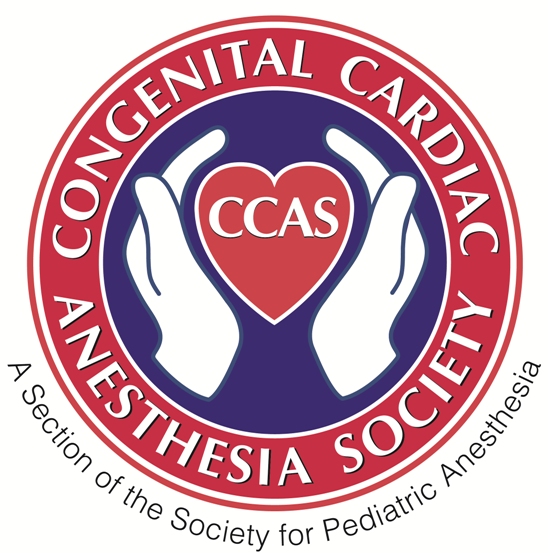Authors: Jessica Yeh, MBBS and Destiny F. Chau, MD - Arkansas Children’s Hospital/University of Arkansas for Medical Sciences, Little Rock, AR
A 6-month-old infant with a normal karyotype is undergoing repair of a complete atrioventricular canal defect. Compared to an infant with Trisomy 21, what is the MOST LIKELY complication after a full operative repair in a patient with a normal karyotype?
Correct!
Wrong!
Question of the Week 330
Atrioventricular (AV) septal or canal defects are strongly associated with Trisomy 21. There is a 40-50% risk of Trisomy 21 in fetuses with a prenatal diagnosis of AV canal defect and approximately 40% of fetuses with Trisomy 21 also have an associated AV canal defect.
Timely surgical repair of AV canal defects can reduce the risk of developing pulmonary vascular disease and subsequent pulmonary hypertension and heart failure. After surgical repair, hemodynamically significant residual defects may necessitate surgical re-intervention. Several studies have demonstrated that the presence of Trisomy 21 is not a risk factor for re-operation. Patients with a normal karyotype have an increased rate of re-operation after primary AV canal defect repair. A common indication for re-operation is residual left atrioventricular valve regurgitation, presumably due to a higher prevalence of left atrioventricular valve abnormalities such as valve dysplasia. An additional indication for re-operation is significant subaortic stenosis or left ventricular outflow tract obstruction, which is also more prevalent in patients with a normal karyotype.
Trisomy 21 is a risk factor for the development of pulmonary hypertension even after repair of an AV canal defect. The etiology is multifactorial including a genetic contribution to endothelial cell dysfunction or abnormal lung development as well as the presence of other comorbidities such as obstructive sleep apnea, gastric aspiration, or tracheobronchomalacia. Right ventricular hypertrophy typically develops over time due to increased pulmonary arterial pressure.
Arrhythmias in the immediate postoperative period after AV canal defect repair occur in approximately 10-15% of patients with 3-4% of patients requiring subsequent implantation of a permanent pacemaker for complete heart block. However, there is no difference in the proportion of patients with heart block relative to the presence of Trisomy 21.
Neurodevelopmental outcomes after cardiac surgery vary depending on the extent of the congenital cardiac lesion. A child with a normal karyotype and complete atrioventricular canal defect has an increased risk of neurodevelopmental impairment compared to their healthy peers, but the presence of Trisomy 21 increases this risk even further.
References:
1. St Louis JD, Jodhka U, Jacobs JP, et al. Contemporary outcomes of complete atrioventricular septal defect repair: Analysis of the Society of Thoracic Surgeons Congenital Heart Surgery Database. J Thorac Cardiovasc Surg. 2014; 148: 2526-2531.
2. Xie O, Brizard CP, d’Udekem Y, et al. Outcomes of repair of complete atrioventricular septal defect in the current era. Eur J Cardiothorasc Surg. 2014; 45(4): 610-617.
3. Formigari R, Di Donato RM, Gargiulo G, et al. Better surgical prognosis for patients with complete atrioventricular septal defect and Down's syndrome. Ann Thorac Surg. 2004; 78(2): 666-672.
4. Lange R, Guenther T, Busch R, et al. The presence of Down syndrome is not a risk factor in complete atrioventricular septal defect repair. J Thorac Cardiovasc Surg. 2007; 134(2): 304-310.
5. Mussatto KA, Hoffmann RG, Hoffman GM, et al. Risk and prevalence of developmental delay in young children with congenital heart disease. Pediatrics. 2014; 133(3): e570-e577.
Timely surgical repair of AV canal defects can reduce the risk of developing pulmonary vascular disease and subsequent pulmonary hypertension and heart failure. After surgical repair, hemodynamically significant residual defects may necessitate surgical re-intervention. Several studies have demonstrated that the presence of Trisomy 21 is not a risk factor for re-operation. Patients with a normal karyotype have an increased rate of re-operation after primary AV canal defect repair. A common indication for re-operation is residual left atrioventricular valve regurgitation, presumably due to a higher prevalence of left atrioventricular valve abnormalities such as valve dysplasia. An additional indication for re-operation is significant subaortic stenosis or left ventricular outflow tract obstruction, which is also more prevalent in patients with a normal karyotype.
Trisomy 21 is a risk factor for the development of pulmonary hypertension even after repair of an AV canal defect. The etiology is multifactorial including a genetic contribution to endothelial cell dysfunction or abnormal lung development as well as the presence of other comorbidities such as obstructive sleep apnea, gastric aspiration, or tracheobronchomalacia. Right ventricular hypertrophy typically develops over time due to increased pulmonary arterial pressure.
Arrhythmias in the immediate postoperative period after AV canal defect repair occur in approximately 10-15% of patients with 3-4% of patients requiring subsequent implantation of a permanent pacemaker for complete heart block. However, there is no difference in the proportion of patients with heart block relative to the presence of Trisomy 21.
Neurodevelopmental outcomes after cardiac surgery vary depending on the extent of the congenital cardiac lesion. A child with a normal karyotype and complete atrioventricular canal defect has an increased risk of neurodevelopmental impairment compared to their healthy peers, but the presence of Trisomy 21 increases this risk even further.
References:
1. St Louis JD, Jodhka U, Jacobs JP, et al. Contemporary outcomes of complete atrioventricular septal defect repair: Analysis of the Society of Thoracic Surgeons Congenital Heart Surgery Database. J Thorac Cardiovasc Surg. 2014; 148: 2526-2531.
2. Xie O, Brizard CP, d’Udekem Y, et al. Outcomes of repair of complete atrioventricular septal defect in the current era. Eur J Cardiothorasc Surg. 2014; 45(4): 610-617.
3. Formigari R, Di Donato RM, Gargiulo G, et al. Better surgical prognosis for patients with complete atrioventricular septal defect and Down's syndrome. Ann Thorac Surg. 2004; 78(2): 666-672.
4. Lange R, Guenther T, Busch R, et al. The presence of Down syndrome is not a risk factor in complete atrioventricular septal defect repair. J Thorac Cardiovasc Surg. 2007; 134(2): 304-310.
5. Mussatto KA, Hoffmann RG, Hoffman GM, et al. Risk and prevalence of developmental delay in young children with congenital heart disease. Pediatrics. 2014; 133(3): e570-e577.
